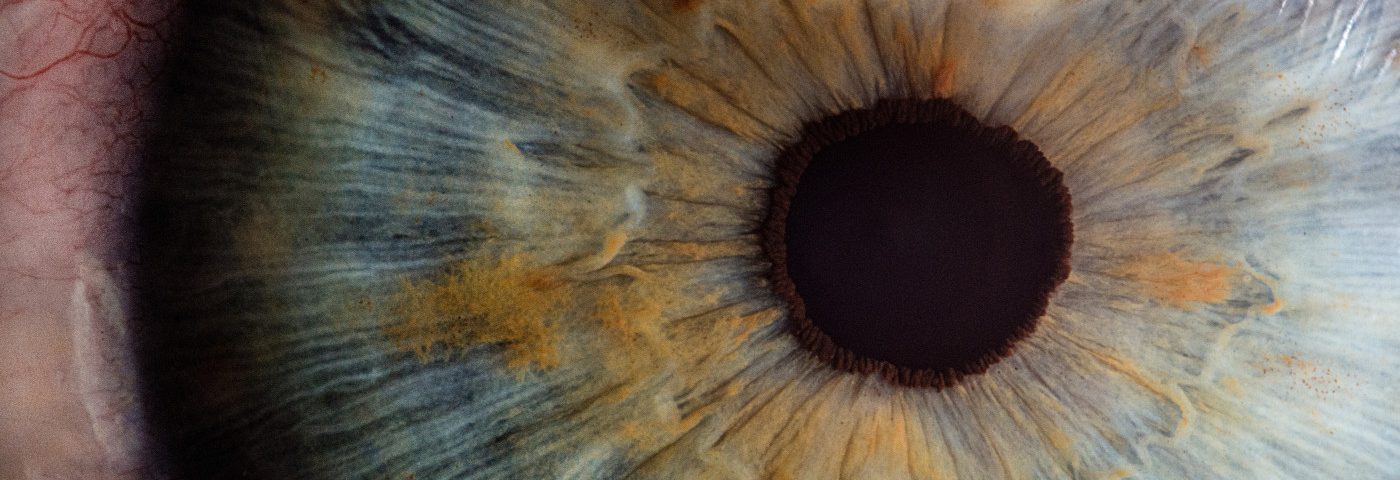A specialized type of lens called a PROSE (prosthetic replacement of the ocular surface ecosystem) lens could be helpful in treating neurotrophic keratitis, a new case report suggests.
The report, “Unilateral pediatric neurotrophic keratitis due to congenital left trigeminal nerve aplasia with PROSE (prosthetic replacement of the ocular surface ecosystem) treatment,” was published in the American Journal of Ophthalmology Case Reports.
The report describes the case of a 3-year-old girl. When she was 1, it was noticed she didn’t react when poked in her left eye, and she was observed occasionally rubbing or scratching the eye. She had no other noteworthy medical or familial history.
The patient was referred to the cornea clinic at Baylor College of Medicine in Texas for examination. Among the tests done was a measurement of corneal sensitivity called the Q-Tip test. This involves touching a swab to the cornea, the transparent covering over the front part of the eye.
Normally, this elicits a blink due to the cornea’s sensitivity to touch. However, the girl had no corneal sensitivity in her left eye (meaning she didn’t blink), whereas she had normal sensitivity in her right eye.
The patient was started on a course of Oxervate (cenegermin), given six times per day for eight weeks. Oxervate in an approved medication to treat neurotrophic keratitis; it works by mimicking the activity of a signaling molecule called human nerve growth factor.
Follow-up evaluation after this eight-week treatment showed no clinical signs of improvement. During the follow-up evaluation, a defect measuring four by five millimeters was detected in the patient’s left cornea.
A subsequent MRI showed the girl had a lesion on the trigeminal nerve, which helps control multiple functions in the face, such as biting, chewing, and tear production.
“The trigeminal sensory nerve fibers play a key role in providing signals for tear production,” the researchers wrote. “With loss of normal neural function, the ocular surface desiccates due to a decrease in reflex tear secretion and blinking and the cornea is thus vulnerable to insult. Spontaneous epithelial breakdown may occur due to the lack of trophic factors supplied by the trigeminal nerve that preserve corneal integrity.”
In other words, the damaged trigeminal nerve in this patient led to a lack of corneal sensation, which makes the eye more likely to get damaged — both because normal cell-to-cell signaling isn’t present, and because the eye becomes more vulnerable to external damage.
The decision was made to treat the girl by fitting her with a PROSE lens, which is a specialized device not unlike a contact lens, which sits over the eye. The PROSE lens provides both a fluid reservoir that helps promote healing, as well as serving as a physical barrier to protect the eye.
“The benefit of scleral devices, like PROSE, is that the fluid-filled chamber of the lens allows for a constant bathing of the cornea with solution and prevents mechanical trauma,” the authors wrote. “By doing this, the scleral lens (SL) provides the necessary environment for the cornea to recover and in turn promotes corneal healing.”
“The SL additionally reduces the burden of frequent application of lubricant tears, which is particularly notable in a pediatric case,” they added.
Treatment with PROSE was effective in the patient. After nine days, the defect noted in the left cornea had healed. Furthermore, visual acuity in the left eye improved from 20/300 prior to treatment to 20/70 after.
For context, a visual acuity of 20/70 is usually considered visually impaired, while one below 20/200 is typically considered legally blind.
At the most recent follow-up, after wearing the PROSE lens for 16 weeks, the girl was tolerating the treatment well.
Collectively, this case supports the effectiveness of PROSE lenses for the treatment of neurotrophic keratitis.
“A scleral lens may be a possible treatment for those with neurotrophic keratitis in which a trial of topical lubrication and human nerve growth factor has not been effective,” the researchers concluded.

